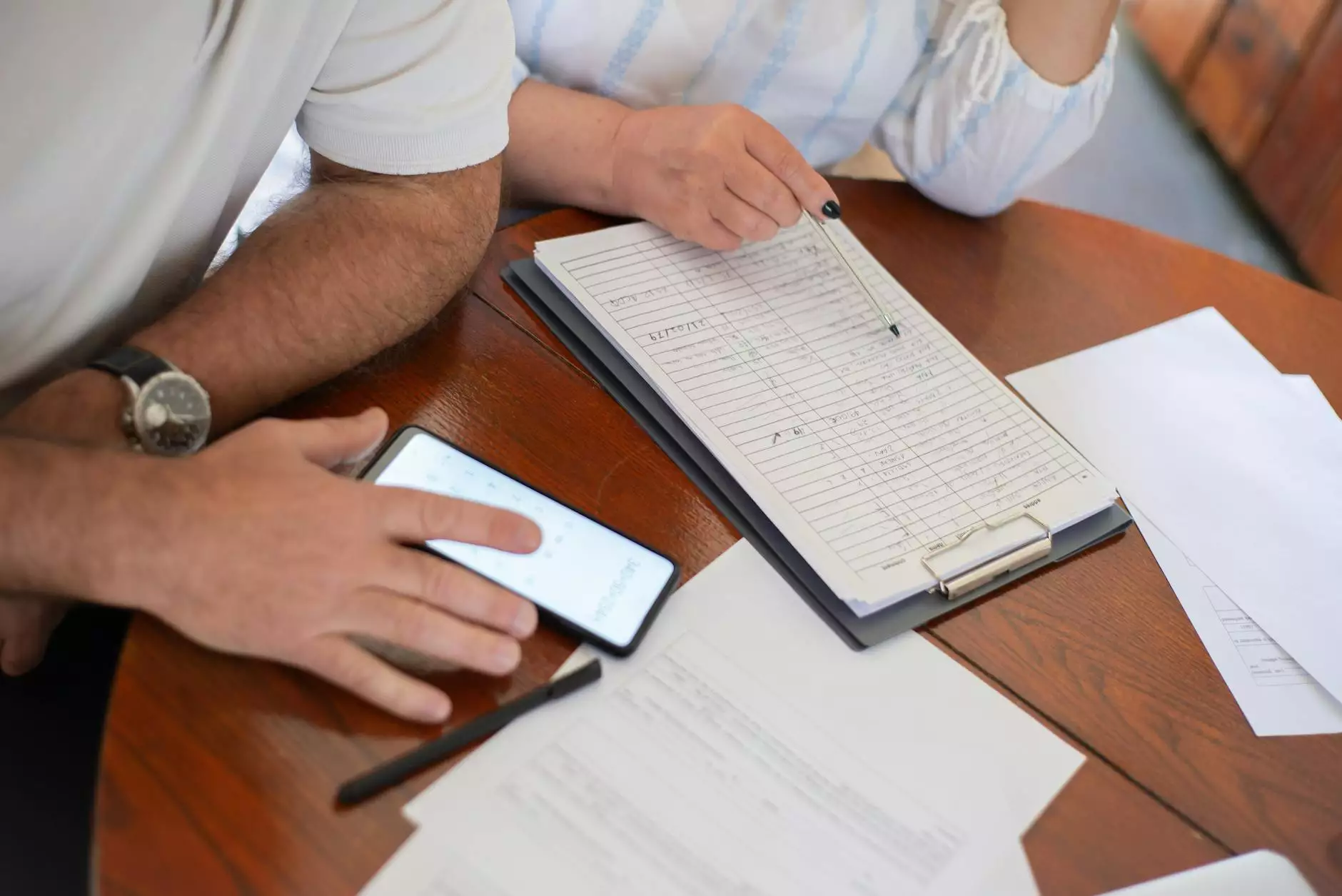The Intricacies of Real and Fake Documents: Understanding Their Importance in Business

In the fast-paced world of commerce, the documents that accompany transactions, agreements, and operations hold paramount importance. Understanding the difference between real and fake documents can influence business outcomes, reputation, and legal standings. In this comprehensive article, we will delve into the world of documents—both authentic and counterfeit—and provide valuable insights into their impact on businesses today.
The Role of Documents in Business Transactions
Documents serve as the foundation for all business activity. They provide proof of agreements, validate identities, and ensure compliance with laws and regulations. They can include, but are not limited to:
- Contracts - These are legally binding agreements that define the roles and expectations of involved parties.
- Invoices - Essential for billing and accounting, invoices detail goods and services provided along with payment terms.
- Business Licenses - These documents ensure that companies operate legally within their specified jurisdictions.
- Identification Documents - These are vital for verifying the identities of individuals engaging in business transactions.
Understanding Real and Fake Documents
When we discuss real and fake documents, it is essential to define what constitutes authenticity. Authentic documents are those that are genuine, verified, and legally recognized. They are backed by legitimate sources and contain specific features that indicate their validity.
On the other hand, fake documents are often expertly crafted to deceive. They can range from poorly constructed papers to sophisticated replicas that can be challenging to distinguish from genuine articles. Here are some common types of fake documents:
- Fake Identity Cards - Used to impersonate someone else, often a significant risk in financial transactions.
- Counterfeit Contracts - These can cause severe legal ramifications if parties unknowingly enter into agreements based on false information.
- Forged Licenses - Businesses operating without the proper licenses can face hefty fines and legal action.
Why Authenticity Matters in Business
In a world where information flows freely and transactions occur quicker than ever, the importance of document authenticity cannot be overstated. Here’s why:
Legal Compliance
Ensuring that all documents are authentic helps businesses to comply with legal regulations. Companies that operate with fake documents risk severe penalties, including fines and jail time for responsible parties. Documenting transactions, agreements, and identities must be taken seriously to avoid legal scrutiny.
Building Trust with Clients
Authentic documents foster trust between businesses and their clients. When clients see that a business adheres to professional standards—including proper documentation—they are more likely to engage in business with that company. This builds a reputation that can lead to long-term relationships and sustained growth.
Protecting Against Fraud
Using real documents can help protect against various types of fraud. Businesses that rely on fake paperwork expose themselves to vulnerabilities, including identity theft and financial loss. Implementing verification checks can significantly mitigate these risks.
How to Differentiate Between Real and Fake Documents
Distinguishing between real and fake documents can be challenging, especially with the increasing sophistication of counterfeiters. Here are some tips for assessing document authenticity:
- Check for Watermarks - Many authentic documents will have watermarks that are hard to replicate.
- Examine Formatting - Real documents often have a uniform format, while fakes may look misaligned or inconsistent.
- Verify Sources - Always check the issuing authority of the document for its validity and reputation.
- Use Technology - Optical Character Recognition (OCR) and document verification software can assist in analyzing digital documents.
The Impact of Technology on Document Authenticity
As technology evolves, so do the methods used to create and detect fake documents. Businesses today are equipped with tools that can help verify authenticity more efficiently than ever before.
Digital Signatures
One of the most significant advancements in document security is the advent of digital signatures. These signatures use encryption to ensure that a document has not been altered and verify the identity of the signer. Implementing this technology can reduce the incidence of fraud.
Blockchain Technology
Blockchain is making waves in the world of document verification. By recording documents on an immutable ledger, businesses can greatly enhance their ability to prove authenticity. This decentralized approach can eliminate the risks associated with traditional forms of document validation.
Understanding the Market for Fake Documents
Despite the significant risks associated with the use of fake documents, there remains a clandestine market where such items are sought after. Understanding this market can provide insights into the motivations behind their creation:
- Criminal Intent - Many individuals seek fake documents for malicious purposes, such as committing fraud or identity theft.
- Desperation - Some may resort to fake documents to navigate bureaucratic obstacles or financial challenges.
- Counterfeiters’ Skills - The high demand for fake documents has led to increasingly sophisticated counterfeiting techniques, making detection harder.
Ethical Considerations
The discussion surrounding real and fake documents also raises ethical questions. Companies must weigh the benefits of verifying document authenticity against the potential consequences of their findings. Maintaining a commitment to integrity and ethical practices is crucial.
Utilizing Professional Document Services
For many businesses, the best approach to handling documents is partnering with professional document services like buyauthenticdocument.com. Such services provide:
- Expertise - Knowledgeable professionals can guide your business regarding best practices for document handling and verification.
- Convenience - Outsourcing document-related tasks allows businesses to focus on core operations.
- Compliance Assurance - Document service providers can help ensure that all paperwork meets legal standards.
Conclusion
In conclusion, understanding the nuances of real and fake documents is essential in the business landscape. The implications of using authentic documents extend well beyond mere legality; they influence trust, reputation, and operational integrity. By embracing technology, employing professional services, and prioritizing ethical practices, businesses can navigate the complex world of document authenticity, ultimately contributing to their long-term success.
As companies strive to thrive in competitive surroundings, the vigilance in maintaining authentic documentation will only grow. Make sure your business is at the forefront by ensuring that all your transactions are supported by genuine and verified documents.



